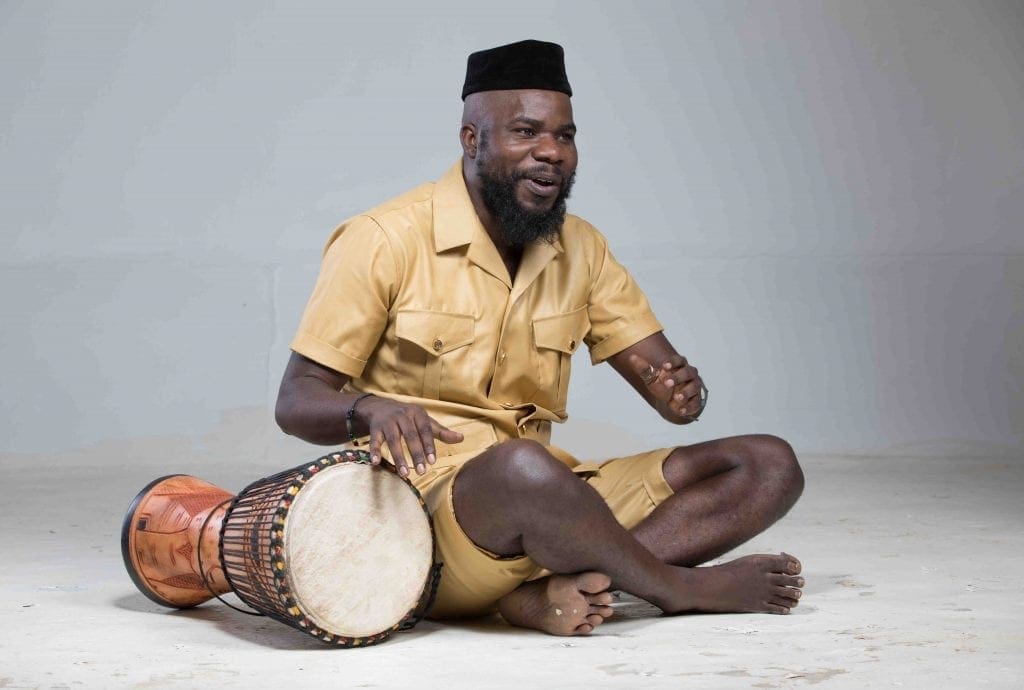Half a century after the golden age of Zambian rock, the country still vibrates to the sound of its local cultures blended with the music of the moment. But while so many artists are dreaming above all of fame and fortune, the rapper Pilato is taking advantage of his popularity to wade into the social and political debate. Even if it means making enemies in high places.
So, what about Zambia? According to Western ears in this new century, it can be summed up in two faces. For listeners who value African reissues, this landlocked country in southern Africa, the continent’s second-largest producer of copper, takes the guise of Rickki Ililonga, from the group Musi O Tunya (the name for the Zambezi falls in the Tonga language). The native of the north-west province is one of the last survivors of a generation of Zambian musicians decimated by AIDS, who, all about fuzzed-out guitars, in the mid-1970s created the sound that the Zambian radio journalist Manasseh Phiri, who died in 2019, would christen Zamrock: an enthralling seam of psychedelic rock that still delights those who like to unearth continental gems.
For younger listeners, urban music enthusiasts, modern Zambia has the attitude, allure and flow of the Australian Sampha The Great, with Zambian roots, whose video for “Final Form”, taken from her latest multi-award-winning album The Return, marks her homecoming.
The reputation of the rapper Pilato (People in Lyrical Arena Taking the Power), alias Fumba Chamba, aged 36, instead remains confined to the younger generation and the inhabitants of the townships in this country of 18 million. But it won’t take long before this reputation reaches beyond the borders of southern Africa. On stage and in his daily life, Pilato is both a calm rebel in Zambian civic society and one of the pet peeves of the Patriotic Front, the ruling party. Next year, Zambians will take part in a repeat of 2016, which pitted incumbent president Edgar Lungu against the UNDP businessman Hakainde Hichilema. Pilato’s influence in the country’s townships will be decisive…
Passionate about poetry and a student of philosophy, Pilato primarily raps and sings in Bemba, the most widely spoken vernacular language alongside English in Zambia’s towns and fields, from the banks of the Zambezi River to the Copperbelt, the mineral-rich region from which Pilato hails. Released on the country’s social media channels on 4 July, Here I Live, his fourth album, set with raw accounts provided by Zambians from the streets, affirms his uniqueness on the domestic rap scene. Pilato expresses himself through music influenced by that of the sub-region, but also by Kalindula, the traditional music of north-west Zambia, popularised by the late P.K Chishala under the regime of father of the nation Kenneth Kaunda. The themes the rapper brings up in pictorial vignettes are those that concern the 60% of Zambians living on less than two dollars per day: pollution linked to the copper industry, the cost of living, corruption, street kids, women’s rights…
When he’s not rapping, Pilato (@iampilato) is on social media leading political interventions and taking part in debates on solutions to the growing social inequalities in the country. “Where the voice of many singers identifies itself with the few powerful elites who abuse the public trust, rob the poor, manufacture inequality, serve as the midwifery of injustice, and erode Zambia’s democracy, Pilato raises his voice to pour criticism on the action of such elites, to attend so the pain of those who suffer, and to serve the silent and oppressed”, points out Zambian historian and university professor Sishuwa Situla
The name Fumba Chamba began circulating among Zambians in 2013. Hopes carried by the populist stanzas of president-elect Michael Sata, nicknamed the Cobra, were turning sour. “When he came to power, he announced that he was going to build roads, give jobs to young people, industrialise our economy, etc. When we saw that nothing had been started, we wrote a song called Lies. Sata died while in office. In 2015, when Edgar Lungu was narrowly elected to see out the term of his deceased predecessor, Pilato got himself talked about once again with “Lungu Anabwela”, which casually took aim at the new head of state. The song earned him his first arrest by the Zambian police for defamation. A year later, Edgar Lungu was re-elected as the country’s leader after a particularly hard-fought duel with Hakainde Hichilema. On 29 September 2017, while the national budget was being presented to the National Parliament, a group of six “activists” including Pilato organised a peaceful demonstration near the Chamber of Deputies denouncing the misuse of public funds. The result was his arrest and indictment for breaches of public order law. In late 2017, a new song this time forced Pilato, the recipient of death threats, to take refuge for five months in South Africa: Koswe Mumpoto (A rat in the pot), a metaphor for the corruption that reigns among the circles of power.
Since Pilato’s return to the country in May 2018, human rights have continued to deteriorate in Zambia amid diminishing food safety and the external debt timebomb. The economic crisis caused by Covid-19 now places the country at an “unsustainable” level of debt, of which Zambians themselves will once again be the first victims.
Pilato recognises that the release of his new album “has sparked a number of interesting debates and conversations about economic inequalities in Zambia and the fact that the Zambian masses are the sole owners of solutions to these problems”. However, he does not intend to get behind any particular political party: “I’m committed to the idea that the real power to motivate change is that of the people. Nobody elected me to be an artist: it’s a privilege that I take seriously and with grace; it allows me complete freedom and flexibility”.


